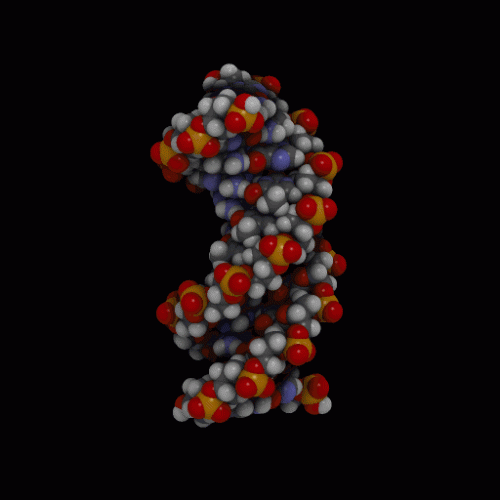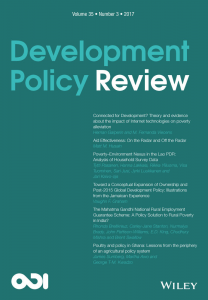Genes cannot be bought, but their testing certainly can be…
 The recent uptick in genetic testing for a range of illnesses has prompted great debate in the medical community about how reliable and useful the testing is, as well as discussion among social scientists about the social and ethical consequences of the testing. One line of inquiry that has been around a bit longer is about biological thinking, specifically as it is related to stigma and inequality. In particular, there is a fascinating and timely discussion of the geneticization of mental illness by Jo Phelan (2005) that, even before the emergence of the current debate about technology, delved into the promise and perils of genetic thinking – though not specifically about genetic testing. For instance, Phelan addresses issues of stigma and labeling associated with seeing mental illness as a genetic problem. Phelan finds that stigma is, at the same time, both enhanced and alleviated by geneticization. In other words, if an illness is genetic, it removes the feelings of responsibility from the sufferer and makes it more difficult for others to blame him or her for said illness. The illness and the person who embodies said condition, then, are not seen as one and the same. However, the same genetic thinking opens the door to a range of new judgments that can be detrimental both in terms of self-concept and the way in which others make assumptions about those who experience, in this case, mental illness. There has been some, but not much work, overall, in the social sciences, about the social problems associated with genetic testing (for a lovely summary, see the article linked below). In the last few weeks, genetic testing has been thrust into the forefront once again after fervent debate that ended with Eric Holder, US Attorney General ruling that genes cannot be patented – thus, genes are in the public domain – even though companies like “Myriad,” a testing company, already possess the patent to two human genes (and it is unclear what will happen to these patents).
The recent uptick in genetic testing for a range of illnesses has prompted great debate in the medical community about how reliable and useful the testing is, as well as discussion among social scientists about the social and ethical consequences of the testing. One line of inquiry that has been around a bit longer is about biological thinking, specifically as it is related to stigma and inequality. In particular, there is a fascinating and timely discussion of the geneticization of mental illness by Jo Phelan (2005) that, even before the emergence of the current debate about technology, delved into the promise and perils of genetic thinking – though not specifically about genetic testing. For instance, Phelan addresses issues of stigma and labeling associated with seeing mental illness as a genetic problem. Phelan finds that stigma is, at the same time, both enhanced and alleviated by geneticization. In other words, if an illness is genetic, it removes the feelings of responsibility from the sufferer and makes it more difficult for others to blame him or her for said illness. The illness and the person who embodies said condition, then, are not seen as one and the same. However, the same genetic thinking opens the door to a range of new judgments that can be detrimental both in terms of self-concept and the way in which others make assumptions about those who experience, in this case, mental illness. There has been some, but not much work, overall, in the social sciences, about the social problems associated with genetic testing (for a lovely summary, see the article linked below). In the last few weeks, genetic testing has been thrust into the forefront once again after fervent debate that ended with Eric Holder, US Attorney General ruling that genes cannot be patented – thus, genes are in the public domain – even though companies like “Myriad,” a testing company, already possess the patent to two human genes (and it is unclear what will happen to these patents).
Drawing on the existent literature on genetic testing, Richard Tutton (whose recent article in Sociology Compass is linked below) reviews the literature on genetic testing and calls for sociologists to pay more attention to these issues. Though Tutton does not address issues of inequality directly, the recent debate on access to genetic testing led me to wonder, for instance, who can afford the testing? Who will it be offered to? Will insurance cover it? How might this testing “blame” ethnic/racial groups for illness? In reference to the Phelan article mentioned above, would knowing one is predestined to developed depression, for instance, change the way we see someone struggling with that condition? And on and on and on. Tutton does survey the literature on the use of genetic testing and forensics and there is clearly an open door to an over-reliance on an imperfect technology when someone’s freedom or life hangs in the balance. One of the great fears about genetic testing is that it will become a central determining factor in whether we see people as “criminal” or not — a frightening idea.
The ruling this month that disallows the patenting of genes might be beneficial in terms of access to testing; if genes cannot be patented, then no one company can hold the sole patent to, say, the test for genes that indicate the possibility to develop cancer or another major illness. This certainly does not solve any of the problems associated with inequality, but perhaps it suggests that the government is, at the very least, aware of some of the potential pitfalls of selective access to medical technology. However, claiming that patenting genes is illegal is in no way the same as claiming a patent on genetic testing technology is illegal — therefore, the technology itself will still only be available to a select group (even if it will be $1,000 if companies are not allowed to patent genes themselves instead of $3,000 if they were able to do so). I would liken this to being able to patent an anti-depressant, but not Serotonin or Norepinephrine. The patents on the drug run out every few years, the drug companies come out with a new medicine that is remarkably similar, patent it and move on. What’s to stop companies from doing the same with any of these new genetic technologies — they may not be able to buy the exclusive rights to the genes, but the technology is theirs nonetheless. There may be more competition for the testing, as no one company can hold the patent of the actual gene, but that does not exactly mean the technology will be available to the average person.
Of course, myriad issues (other than the social ones) surround genetic testing, including whether or not it is truly an accurate mechanism for determining one’s illness future, how much the tests cost (even without patents), the social and emotional consequences of knowing what illnesses are in store for us in the future, the possible insurance ramifications of “knowing” we might develop cancer or diabetes or schizophrenia, the development of these technologies in a profit-seeking private sphere, etc. What is clear is that social scientists must join and hopefully work with biologists, geneticists, medical researchers, and medical doctors to investigate these issues. Hopefully, with this landmark ruling this month, those who desire/need access to this kind of testing may have won a small battle.




1475-682X/asset/akdkey.jpg?v=1&s=eef6c6a27a6d15977bc8f9cc0c7bc7fbe54a32de)
1540-6237/asset/SSSA_Logo-RGB.jpg?v=1&s=c337bd297fd542da89c4e342754f2e91c5d6302e)
1 Response
[…] Patents Decision raises questions about the industry Social aspects of genetic testing technology Genetic testing – Google Blog Search by lsgcp Related news: Online game to help with genetic code MONTREAL, Nov. 29 (UPI) — […]